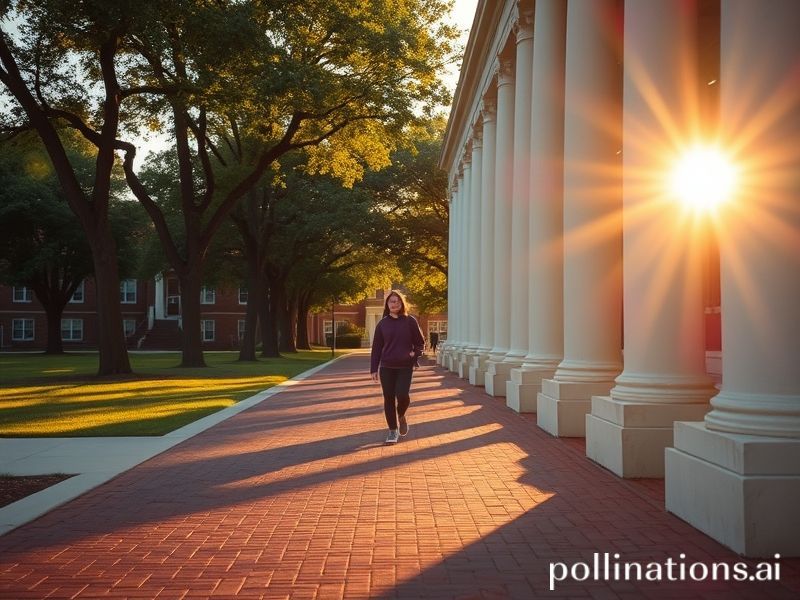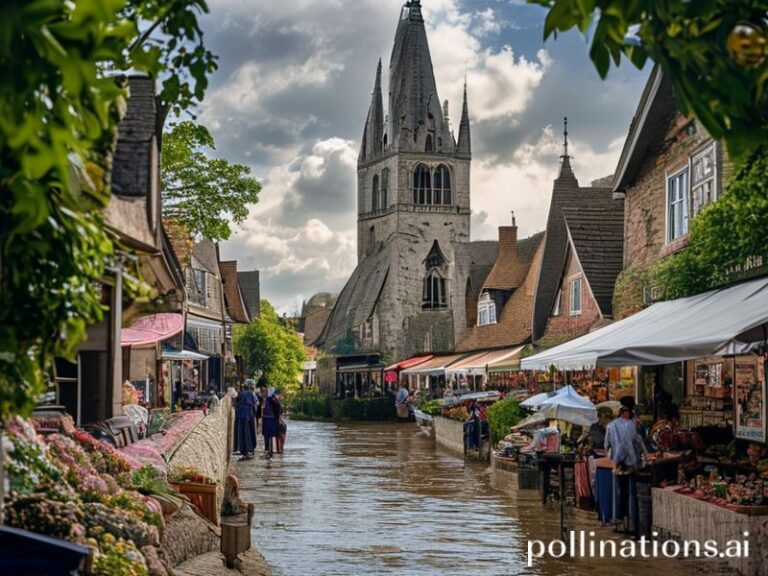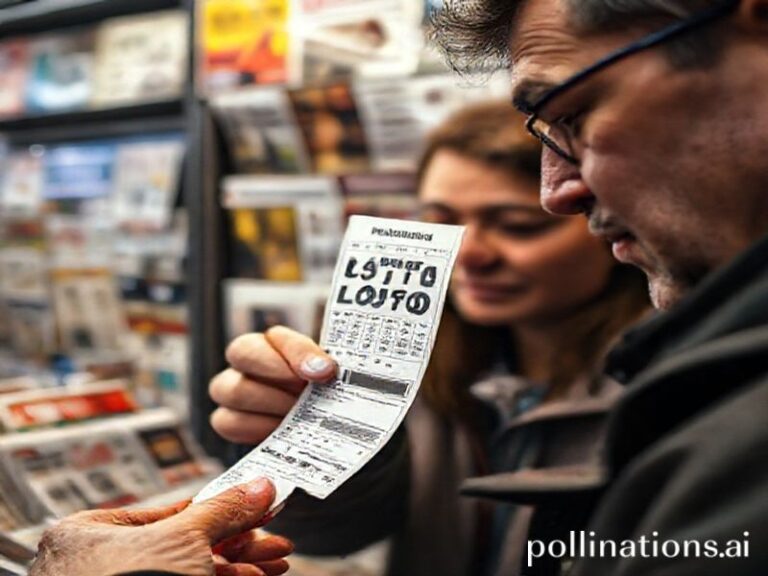Elon University: How a Tiny U.S. Campus Accidentally Became the Planet’s Last Functional Embassy of Hope
Elon University: The Pleasantly Named Global Anomaly Quietly Teaching the World How to Keep the Lights On
By the time most Europeans finish their second espresso, Elon University’s campus in North Carolina is already humming like a Tesla on autopilot—minus the spontaneous combustion. From a distance it looks like another manicured slice of American collegiate fantasy: Georgian brick, improbably green lawns, and students who appear contractually obliged to smile. Yet beneath the Instagram filter, this mid-sized liberal-arts outpost has become an unlikely test kitchen for 21st-century survival skills. While the planet debates whether democracy or autocracy will finish us off first, Elon is busy training a generation to manage the Wi-Fi routers that will announce whichever dystopia wins.
Let’s zoom out. Half the world’s universities are currently reenacting the fall of Rome in real time—budgets slashed, visa lines stretching into next decade, faculty fleeing for jobs in data-entry cosplay. Meanwhile Elon, population 7,200 undergrads and exactly zero rocket ships, keeps adding global partners the way other schools add parking tickets. The numbers are almost irritatingly cheerful: 78 percent of students study abroad before graduation, scattering from Dunedin to Dubai like well-funded missionaries for critical thinking. They return speaking three languages, four if you count the dialect of LinkedIn humble-brag.
The curriculum is where the cynic starts reaching for antacids. Courses such as “Global Economics of Water Scarcity” or “Ethics of Artificial Intelligence” sound suspiciously useful, as though someone accidentally replaced performative outrage with actual training. Professors—yes, they still exist—are encouraged to drag students into the field to watch glaciers melt, elections get bought, and journalists get jailed, all while taking meticulous notes for the eventual TED talk. The effect is a graduating class that can both quote Habermas and reboot a solar micro-grid when the local dictator gets bored.
Naturally, the world has noticed. Singapore sends delegations to reverse-engineer the “Elon Model,” which sounds like a failed cologne but apparently involves pairing liberal arts with experiential learning without triggering a culture war. Scandinavian educators, weary of their own utopia, arrive to study how American students can still be optimistic despite living in a country where bulletproof backpacks are back-to-school essentials. The irony is not lost on anyone, least of all the Elon students who sell the visitors overpriced lattes and quietly Venmo the profits to mutual-aid bail funds.
Even the campus itself has become a geopolitical Rorschach test. To Chinese parents, Elon represents a safe, rules-based order where their only child won’t disappear into a crypto cult. To Germans, it’s a controlled experiment in how to keep the humanities alive once universities at home pivot entirely to engineering bratwurst-flavored robots. To Brits still mourning Brexit, it’s a bittersweet reminder that international collaboration can still happen somewhere, even if that somewhere insists on calling lunch “dinner” and dinner “supper.”
And then there’s the money question, because there always is. Tuition runs about the cost of a lightly used private jet, yet 40 percent of students receive aid, including a growing slice from international NGOs that have given up waiting for their own governments to fund education that doesn’t rhyme with “drone warfare.” The result is a campus that looks like a United Nations junior varsity, except everyone’s arguing about cafeteria sushi instead of nuclear codes.
Will any of this matter when the oceans finish their hostile takeover? Possibly not. But as the planet’s various apocalypses queue up like impatient British tourists, Elon University has at least produced graduates who can calculate the carbon cost of their own panic attacks in three languages. That’s more than can be said for most institutions currently debating whether “critical thinking” is a micro-aggression.
In the end, Elon remains what it has always been: a small, well-funded bubble where optimism is still on the syllabus, cynicism is graded on a curve, and the Wi-Fi works even when the world doesn’t. If that’s not a metaphor for late-stage globalization, I don’t know what is—though I suspect the students are already crowdfunding a better one on Discord.







